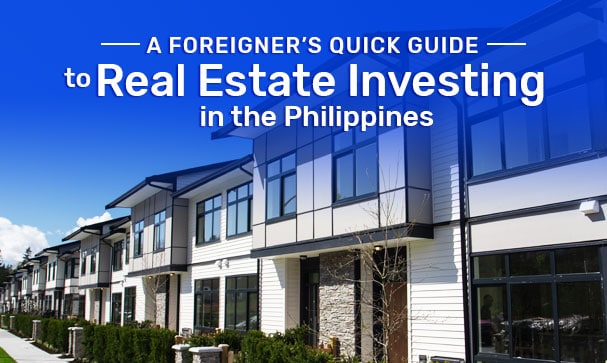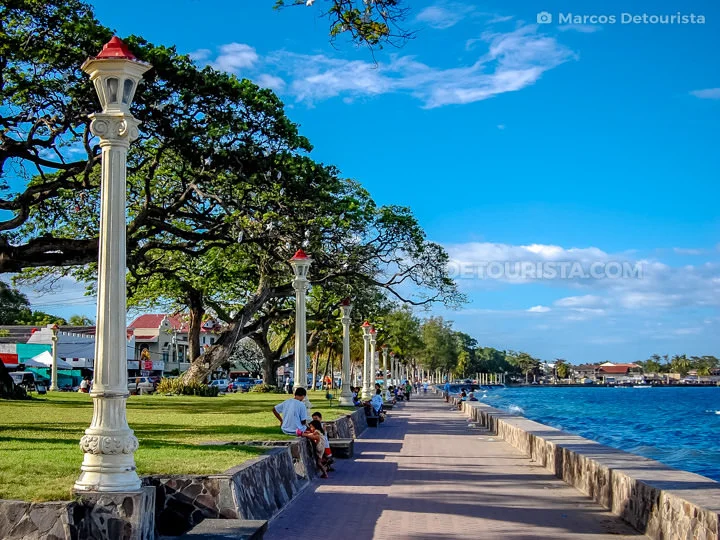Are you an expat looking to invest in real estate? The Philippines might be the perfect place for you! With a thriving economy, a low cost of living, and breathtaking natural beauty, it’s no wonder why so many foreigners are choosing to buy property in this tropical paradise. However, navigating the real estate market in a foreign country can take time and effort. That’s why we’ve designed this comprehensive guide to help you make informed decisions and find your dream home in the Philippines. From legal considerations to financing options, we’ve got you covered. So please sit back, relax, and let us guide you through the exciting world of real estate in the Philippines.
Why Invest in the Philippines for Real Estate
The Philippines is an excellent opportunity for anyone looking to expand their portfolio and make their money work for them. The Philippines has seen enormous economic growth over the last decade and continues to provide a solid foundation for those looking to invest. With an affordable cost of living, generous government incentives, and the Philippine peso’s substantial value against foreign currencies, this is an ideal place to capitalize on your investments. Not to mention, there are plenty of exciting locations and property options to choose from! From bustling urban centers to entire secluded places in the country, you will be satisfied with what’s available. Investing in real estate in the Philippines offers an excellent financial return and some must-see sights.
Best Locations for Expats in the Philippines
Moving to the Philippines is a great investment opportunity for expats, but finding the right spot can take time and effort. Consider key factors like cost of living, accessibility, and security when deciding. Cebu City stands out with its flourishing commercial real estate market and low cost of residence in comparison to other Philippine cities – definitely worth considering!
This modern city also has excellent infrastructure, allowing easy access throughout the country. If you choose a more rustic atmosphere, consider Baguio City, located among beautiful mountain peaks and has a cool climate year-round. In addition to its unique environment, this city offers an international community with excellent safety ratings, making it perfect for families relocating abroad. Carefully research your options before deciding which location is right for you!
Legal Considerations for Expats Buying Property in the Philippines
As an expat considering buying property in the Philippines, it is essential to understand the complex legal process that must be completed. Doing your research and understanding what documents and permits are required is necessary; different procedures may apply depending on your nationality and type of ownership. Generally, foreign nationals must receive special Philippine government permission before making real estate investment purchases. It is also good to consult a lawyer specializing in Philippine real estate law beforehand. Since there could be other factors involved that you may need to be made aware of, such as land. Use restrictions or fluctuating land values—which could affect your decision. Familiarizing yourself with all the legal considerations related to purchasing property in the Philippines, including relevant taxes, insurance, and zoning regulations. You will have peace of mind if the purchase goes through.
Legal Considerations for Expats Buying Property in the Philippines
When buying property in the Philippines, expats have many legal considerations. As foreign nationals, they are subject to restrictions on owning land here—most notably, the ban on outright land ownership. While this limits the types of properties that can be purchased initially, qualified retirees may be able to buy property as long as they seek approval from the Retirement Authority. This process typically involves establishing a corporation to buy the property and entails submitting several documents and required certification from the Philippine Retirement Authority. Furthermore, additional regulatory requirements must be met for foreigners to take possession of the property. With careful planning and appropriate guidance, though, expats looking to purchase real estate in the Philippines should have no trouble navigating through all the necessary legal considerations.
Finding the Right Property in the Philippines
When finding the perfect real estate property in the Philippines, expats should consider various essential factors. Location is critical – ensure you find a place that fits your budget. And is equally livable by evaluating nearby resources, transportation networks, and other essential amenities. Size also matters – ensure the property is large enough to meet your needs while remaining within your price range. Price can also be invaluable; research current real estate market trends to ensure you get value for money.
Expats have various resources when searching for a home in the Philippines, such as online listings or professional real estate agents with in-depth knowledge of the area. If you’re deciding between purchasing a brand-new or pre-owned property, there are advantages and drawbacks. The new property costs more upfront but often has additional features like modern appliances. At the same time, existing homes may require renovations and remodels but could offer better value over time. Ultimately, consider these primary considerations when selecting one of the perfect real estate properties in the Philippines!
Keller Williams Philippines
KW Philippines takes pride in its dedication to integrity, competence, and individualized service. KW Philippines is the go-to agency for all your real estate needs, regardless of whether you want to buy, sell, or rent a home. You can rely on KW Philippines to assist you in achieving your real estate goals. Their in-depth understanding of the neighborhood market and their broad network of contacts.

Differences Between Buying and Renting Property in the Philippines
As an expat, deciding between buying and renting a property in the Philippines can be daunting. Before making your final decision, you should carefully weigh the advantages and disadvantages of individual options. Factors such as affordability and location must be taken into account. Purchasing real estate in this country generally requires more capital upfront than renting due to closing costs, lawyer fees, taxes, and other related expenses. If money is tight, but you still need your own place, then renting is better for you. However, rents tend to be comparatively higher in areas with easy access to public transportation or work opportunities.
On the other hand, if ownership fits your budget, research neighborhoods thoroughly to get what you want regarding safety, schools and convenience stores nearby, etc. Ultimately, after evaluating all aspects of buying and renting a property in the Philippines. It will come down to whether secure long-term status or mobility outweighs several other factors.
Properties Gateway
Real estate platform Properties Gateway seeks to transform buying, selling, and renting property. Through a smooth and secure listing, reservation, and turnover procedure, Properties Gateway, as your real estate partner, seeks to simplify the property acquisition process by linking developers, agents, and direct sellers with potential buyers. Properties Gateway is on its way to giving millions of people their ideal homes and property thanks to top-performing in-house agents and a team skilled in helping sellers and buyers.
Financing Options for Expats
Expats who want to buy property in the Philippines have various financing options. Local banking is usually preferable, and most Filipino banks can provide expats with the necessary loan facilities. Additionally, several specialist Mortgage Lenders offer financing packages tailored to expats’ individual needs, including short-term lenders and long-term loans. These lenders often have more flexible requirements than traditional banks, offering greater accessibility for international buyers wanting to purchase property in the Philippines. Ultimately, expats can carefully decide how best to finance their property purchase by researching all the financing options available and determining which best suits one’s needs regarding the length of stay and repayment flexibility.
Conclusion:
Funding in real estate in the Philippines is an excellent opportunity for expats looking for financial gain and adventure. The Philippines has a thriving economy, affordable living, and stunning natural beauty, making it a famous destination for foreigners. However, navigating the real estate market can be daunting, and expats must consider legal considerations, location, and property type. With careful planning and appropriate guidance, expats can make informed decisions and find their dream home in the Philippines. Whether you’re considering buying or renting, weigh the pros and cons of each option and research all your choices carefully. Financing real estate in the Philippines can be a mysterious yet exciting journey. We hope this guide has provided insights to help you make the right decisions.
The Philippines is a fascinating country with a booming real estate market that offers expats a range of investment opportunities. Whether you are a pioneering buyer or a seasoned investor, understanding the legal requirements, navigating the market, and finding the perfect property can be challenging. This comprehensive guide to real estate in the Philippines for expats and returning OFW has provided valuable details to help you make informed decisions about your real estate investment. With the appropriate resources and knowledge, you can easily find your dream property in the Philippines and enjoy the beauty and charm of this beautiful country.






